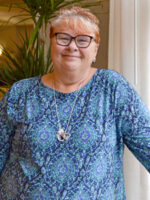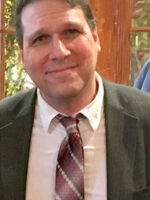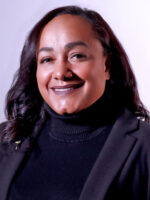• Roundtable 1: Understanding the Experience of Mental Health Stigma
• Roundtable 2: The Experience of Mental Health Stigma Among Diverse Groups
• Roundtable 3: The Role of the Media in Reducing Stigma
• Roundtable 4: Paths to Reduce Stigma and Promote Positive Attitudes, Beliefs, and Behavior
This 90-minute virtual roundtable discussion will focus on providing attendees with a thorough understanding of the experience of mental health stigma, including but not limited to the various types of stigma, the impact of the stigma experience on the help-seeking behaviors of those experiencing mental health challenges, and how mental health stigma impacts the quality of care provided to people impacted by mental illness. Panelists will share their personal and professional experiences with mental health stigma.
Roundtable Facilitator – James Rodriguez, LCSW, PhD
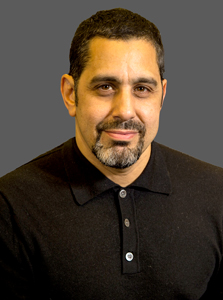
Dr. James Rodriguez
Dr. James Rodriguez is a New York State Licensed Clinical Social Worker and Psychologist in private practice with over 25 years of experience as a direct practitioner, trainer, and researcher in mental health services to children, youth, adults, and families. He is the Senior Director of Clinical Initiatives at the McSilver Institute for Poverty Policy and Research and Adjunct Faculty at the NYU Silver School of Social Work.
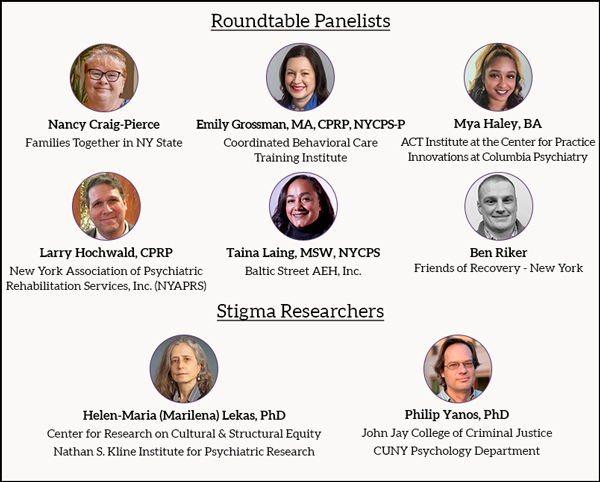
Roundtable Panelists (click for details)
Like a lot of parents, Nancy started her “career” learning to navigate the child serving systems for her children. Little did she realize that her personal experiences would lead her on professional quest to ensure every family, no matter the challenges have access to a family peer helping to teach, coach and mentor parents as they journey towards their personal strength and empowerment.
Nancy has worked with Families Together for 27 years. First as a Regional Parent Advisor and currently as the Director of Community and System Engagement, leading a team of 10 Regional Parent Advisors engaging and advising the child serving systems on the value of family driven and youth guided practices, data collection and especially outcomes!
Nancy works closely with Family Peer Advocates in delivering the Family Needs & Strengths (FANS) outcome measure for Family Peer Support to use to quantify their excellent work with parents and caregivers.
Nancy also is passionate about residential experiences for families and their youth. She works closely with the Building Bridges Initiative to support organizational transformation within the residential framework leading to family driven, youth directed services and best practices for successful outcome for families and their youth.
In her spare time and in true advocacy fashion Nancy worked with other FPA’s to create a very low cost summer camp experience for the whole family to come together for three nights -four days in a safe supported environment to build those memories as a family, not an illness.
Emily Grossman, MA, CPRP, NYCPS-P has worked in mental health for over a decade, beginning on the “front lines” as a peer specialist in community mental health in NJ. After several years, she transitioned to doing mental health provider training and systems change work at large organizations such as The Jewish Board, Columbia’s Center for Practice Innovations, and the New York Association of Psychiatric Rehabilitation Services (NYAPRS). In 2018, she was the winner of the National Council for Behavioral Health’s prestigious “Peer Specialist of the Year” Award. Currently, Emily is the Director of the Training Institute at Coordinated Behavioral Care and has a small private peer specialist practice. Emily frequently speaks nationally about mental health recovery. She holds a Master’s in Education from Columbia University.
Mya Haley is a peer specialist recovery trainer with the ACT Institute. She works to destigmatize mental health diagnoses and normalize the experience of those with lived experience and/ or psychiatric labels, both on clinical provider teams and as service recipients. Her goal is to continue breaking down walls of stigma that allow space for mistreatment and abuse within the mental health system while also centering lived experience as expertise that the system itself can benefit from when there is equitably and thoughtful inclusion.
Having worked for providers of mental health services in New York for many years, Larry has seen the transition of mental health services from the medical model to a more inclusive model of recovery oriented, person centered services.
Larry was a mental hygiene therapy aide for a New York State hospital, South Beach psychiatric center, in the late 1980s. He then went on hiatus from the field and worked in financial services for more than a decade, where among other things, he became a trainer of these services at a Fortune 500 company.
Seeking more meaning in his professional life, he returned to our field. He worked in several direct care positions for one of the largest private mental health systems at the time. One of those positions, was as the trainer for their Residential Services as well as providing training throughout that system. Another part of his job was community outreach. It was here that he joined the Staten Island Mental Health Council, started to work more closely with the city, and back when the city had the Federation of Mental Health Councils for the five boroughs, he co-researched and wrote a report on stigma and anti-stigma efforts for the Federation. This was a very important topic to him, because as the community liaison for a large residential system, he saw firsthand how the misinformation and misunderstandings about mental health issues that the public had, directly and unfairly impacted the rights and lives of people receiving services.
In the last eight years, Larry has worked for NYAPRS, getting his CPRP, he is the New York City and Long Island Training and Technical Assistance Facilitator, as well as being promoted, first to the Training Collective Team Leader position in 2021, and then taking over the Training Collective as its Manager in 2022. In this role, he brings recovery oriented, person-centered, culturally competent and trauma and resiliency informed practice to the mental health services provider community.
Taina Laing, MSW, NYCPS, has been employed at Baltic Street AEH, Inc. since 2002 and was appointed as the new CEO as of September 2020. Taina brings over 20 years of peer supervision, advocacy, and vocational services to individuals with mental health diagnoses. Taina is passionate about advocacy that addresses equality and service disparities in low socioeconomic communities. She believes in the power of peer specialists and the integration of peer advocates in all areas of recovery and support. Taina often states, “Peer advocacy supports are integral to all social determinants of health! We cannot allow social or health policies to be written without the inclusion of the peer perspective and insight.”
Taina participates on several committees and boards across New York State; she was recently elected the Co-President of the New York Association of Psychiatric Rehabilitation Services (NYAPRS), sits on the New York State Peer Certification Board, Institute for the Development of Human Arts (IDHA) board, WCNY-IPA, and is a professional participant in developing and overviewing the exam of the MHA National Certified Peer Specialist. Taina graduated from Stony Brook University with her MSW and is a New York State Certified Peer Specialist and is looking forward to pursuing her Ph.D. in researching transgenerational trauma and the links of systematic oppression within the mental health and justice system.
Ben Riker is a father of two, a person in recovery, and a passionate advocate for data-driven, evidence-based policy surrounding education, treatment, and recovery from Substance Use Disorders. His professional background includes all aspects of organizational peer-professional integration and programming including training, coaching, and supervision as well as community and professional education and outreach. Ben was a FOR-NY Best Practice Trainer, a member of the ASAP-NYCB Trainer Registry and serves on the Partnership to End Addiction’s FIRST Research Network National Advisory Board, Faces and Voices of Recovery’s National Public Policy Committee and the NY Association of Substance Abuse Provider’s Harm Reduction Committee.
Helen-Maria (Marilena) Lekas, PhD joined the Nathan S. Kline Institute in 2016 as a Research Scientist in the Division of Social Solutions and Services Research, and as Co-Director of CCASE (Center for Research on Cultural and Structural Equity) http://ccase.org/about-us/vision/. She is an Associate Professor, Department of Psychiatry, NYU Grossman School of Medicine. She earned a Ph.D. in Sociology from Columbia University and served as an Associate Professor at Mailman School of Public Health and built a 13-year NIH-funded research portfolio on infectious and chronic diseases in low-income and racialized communities. Engagement in medical care, patient-provider relationships, intersectional stigma, symptom interpretation and illness management in persons with behavioral health needs makeup her research agenda. Her projects are based on using applied, theory-driven research methods. Most recently, Dr. Lekas has developed a cultural and structural competence training for the peer advocate mental health workforce and is collaborating on a large-scale stigma-reducing initiative led by the Office of Mental Health of NYS. For a list of publications: https://med.nyu.edu/faculty/helen-maria-lekas
Philip T. Yanos, Ph.D., is native New Yorker and proud Greek-American. He is a professor of psychology at John Jay College and the Graduate Center, City University of New York. A researcher who focuses on stigma and how it interferes with recovery among people diagnosed with mental illnesses, he is the author of Written Off: Mental Health Stigma and the Loss of Human Potential (Cambridge University Press, 2018) and associate editor for the journal Stigma and Health. He is the co-developer of Narrative Enhancement and Cognitive Therapy, a group-based treatment which addresses the effects of self-stigma among people diagnosed with mental illnesses that has been translated into several languages. He is the author of more than 100 articles and book chapters and has been principal investigator on several federally-funded research projects.
Related Articles
Trapped by Tradition: The Anxiety of Being a ‘Good’ South Asian Daughter-in-Law
The mental health impact of South Asian in-law conflict and the emotional toll on daughters-in-law and the need for cultural change.
Breaking the Silence: How Reducing Stigma Can Improve Perinatal Mental Health Outcomes
Explore the importance of Perinatal Mental Health on World Maternal Mental Health Day and learn about PMADs and their impacts.
“The Son Belongs to His Mother”: South Asian Daughters-in-Law and the Mental Health Toll of Family Hierarchy
Explore the complex role of a South Asian daughter-in-law within family hierarchies and cultural expectations in this insightful post.
The Cost of Silence: How Ignoring Mental Illness in South Asian Families Leads to Physical Health Issues
Explore the challenges of south asian mental health. Understand the impact of cultural stigma on well-being and physical health.
Spirituality Versus Psychiatry: Why Many South Asians Turn to Religion Before Therapy or Psychiatric Medication
South Asian mental health stigma and how cultural and religious factors influence mental health care choices.




